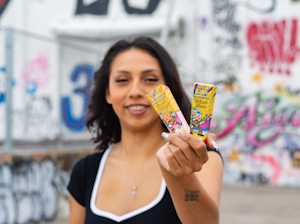
Photo by FANETTE GUILLOUD
Will CBD Oil Show Up On A Drug Test?
It’s possible, but it depends on your chosen CBD product.
Welcome to the complex and often misunderstood intersection of CBD and drug testing. As CBD gains popularity for its health and wellness benefits, a pressing question emerges for many: “Will CBD oil show up on a drug test?” This query is particularly relevant for those who undergo regular drug screenings, whether for employment or other reasons.
In this exploration, we dive into the essentials of CBD and its interplay with drug testing. We aim to unravel whether this acclaimed cannabinoid can pass through drug screenings unnoticed, offering clarity to those who rely on CBD yet face the potential challenges of routine drug screening.
Understanding CBD

At the heart of our discussion lies cannabidiol, more commonly known as CBD. Extracted primarily from the hemp plant, CBD has skyrocketed in popularity due to its numerous health and wellness benefits. Unlike its relative THC (tetrahydrocannabinol), which is known for its psychoactive properties, CBD doesn’t produce a ‘high.’ This fundamental difference often leads to confusion about its detectability in drug tests.
CBD works by interacting with the body’s endocannabinoid system, which regulates various processes in the body. Its therapeutic uses range from relieving chronic pain and anxiety to improving sleep and even supporting heart health. But despite its therapeutic benefits, the legality and regulation of CBD can vary significantly, adding another layer of complexity.
The diversity of CBD products is where the concern lies for drug testing. The trace amounts of THC in some CBD products, even if legally compliant, can potentially influence drug test results. So, it’s essential to understand the type of CBD product you’re using, especially if you’re subject to regular drug screenings.
Drug Testing Basics
Drug tests are typically designed to detect the presence of illegal substances or prescription medications that can impair an individual’s ability to perform specific tasks, especially in the workplace.
The most common substances tested for include opioids, amphetamines, cocaine, and THC – the psychoactive component in cannabis.
There are various drug tests, with urine tests being the most common due to their ease and cost-effectiveness. Other methods include blood, hair, and saliva tests, each with varied detection windows and sensitivity levels.
Drug tests generally look for THC, not CBD. Since THC and CBD are different compounds, a standard drug test won’t typically screen for CBD. However, the challenge arises with the sensitivity of these tests and the fact some CBD products may contain trace amounts of THC.
This trace of THC can sometimes be enough to trigger a positive result on a highly sensitive test.
Will CBD Oil Show Up On A Drug Test?

It’s unlikely, but not impossible.
Pure CBD oil, which contains no THC, typically won’t show up on a standard drug test, as these tests are not designed to detect CBD. However, the risk lies in the purity of the CBD product.
The pivotal factor is the THC content in the CBD oil. Full-spectrum CBD products, which include all cannabinoids from the cannabis plant, contain trace amounts of THC. If the THC concentration is high enough, it may lead to a positive drug test result.
Conversely, broad-spectrum CBD and CBD isolates, which either contain no or negligible THC, significantly reduce this risk.
What To Do If You Fail A Drug Test
If you fail a drug test after using CBD, first consider requesting a retest to rule out a false positive. Be transparent about your CBD use with the testing authority or employer, explaining CBD’s legal and non-psychoactive nature. Provide documentation for the CBD product used, highlighting its THC content.
If the outcome is significant and you believe it’s unjust, seeking legal advice is advisable. For future use, consider switching to broad-spectrum or isolate CBD products, which are less likely to contain THC.
Herb Recommended Products:
READ MORE










